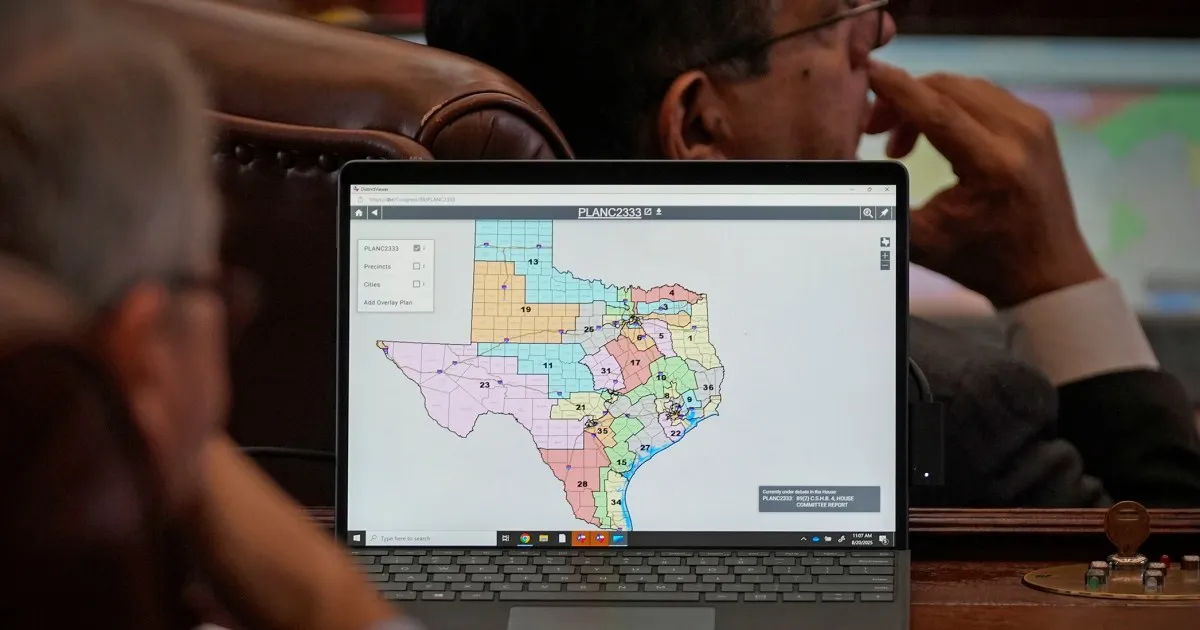
The Republican-controlled Texas state Senate has successfully passed a new set of congressional maps, marking the conclusion of a significant legislative journey filled with Democratic delays. This decisive vote not only reshapes the political landscape in Texas but also ignites a nationwide debate over redistricting. The newly approved maps are designed to bolster the Republican majority in the U.S. Congress and will become effective once signed by Governor Greg Abbott, a staunch supporter of the plan, who has received backing from former President Donald Trump.
The newly drawn maps are intended to secure an additional five congressional seats for the Republican Party, as urged by Trump. By redistricting boundaries in pivotal urban areas and along the state’s borders, Texas is set to have 30 congressional districts that Trump won in the last election by a significant margin. Currently, the GOP controls 25 out of the 38 congressional districts in Texas, and they have made it clear that their primary objective is to enhance their political power in Washington, especially given the closely divided nature of the House of Representatives.
In response to the approved maps, Texas Democrats have vowed to challenge the legislation in court. They argue that Republicans are breaking the norm by redrawing the congressional lines ahead of the customary 2031 timeline, setting a troubling precedent. Additionally, Democrats have expressed concerns that the new maps will diminish minority representation within the state, a claim that Republican lawmakers have categorically denied.
Unlike the state House, where Democratic lawmakers previously stalled proceedings by fleeing the state to deny a quorum, the Senate faced no such disruptions. As the measure moved forward, it attracted swift criticism from opponents. State Senator Sarah Eckhardt condemned the process on social media, stating, “This is not democracy; this is disgraceful.” The Democrats attempted to delay the Senate vote through a filibuster, led by State Senator Carol Alvarado, who had announced her intention to speak for several hours. However, the Senate recessed for a long dinner break, after which Alvarado was unable to commence her filibuster as Republicans accused her of violating Senate rules by trying to fundraise during the process.
With Governor Abbott poised to sign the new congressional maps into law, the focus now shifts to California, where Democratic lawmakers are formulating their own redistricting proposal as a reaction to Texas's actions. Unlike Texas, where legislative approval suffices to amend the maps, California's proposal must receive voter approval in a special election this fall to take effect. This development underscores the ongoing political chess game surrounding congressional redistricting across the nation.